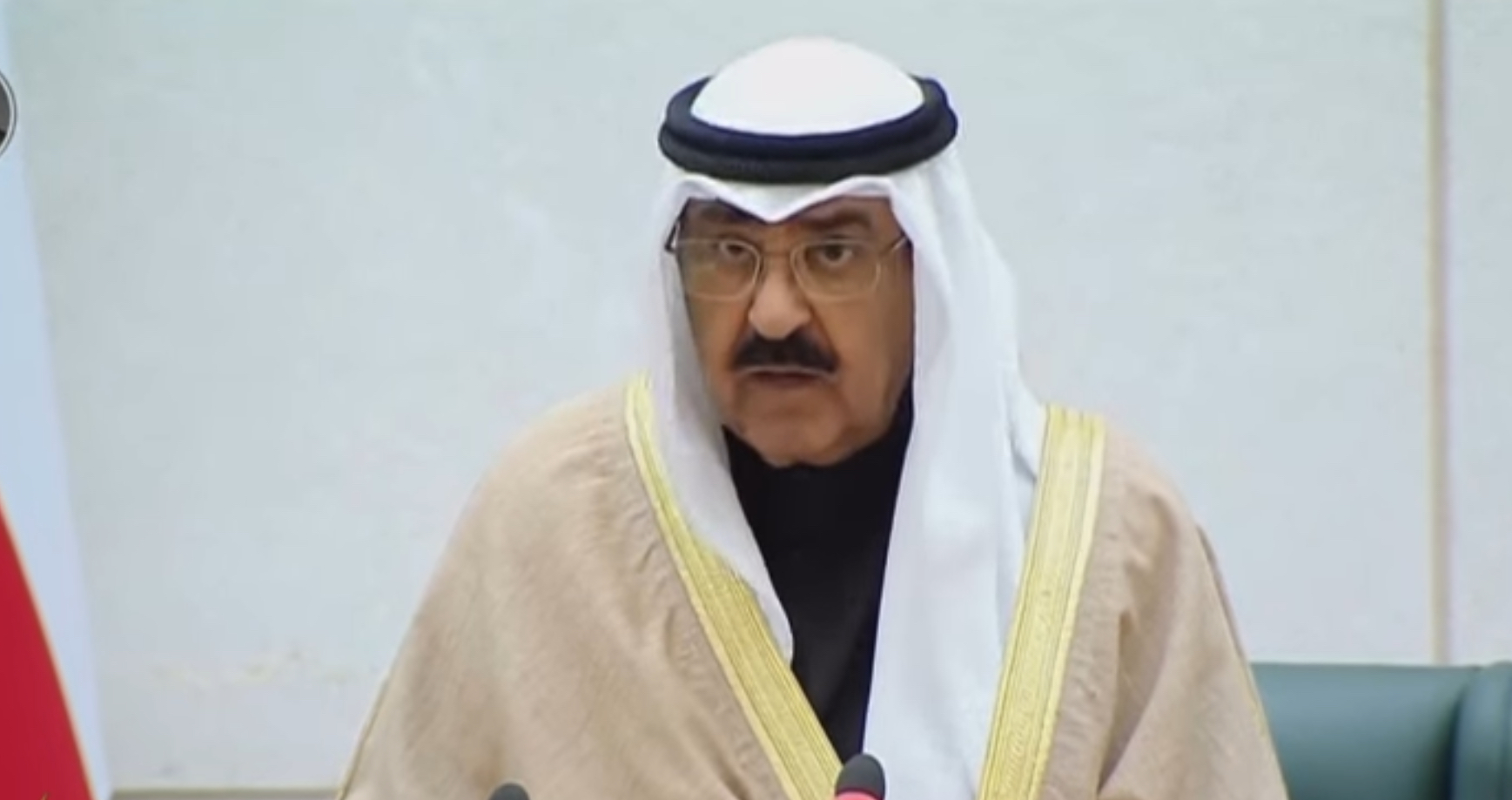Kuwait, new emir slams government and parliament for 'damaging' the country
In his (first) inauguration speech, Sheikh Meshal attacks the institutions that have failed to bring about 'change or correction' in the course of the nation. He also targets decisions that 'do not meet' standards of 'fairness and justice'. The country still relies on crude oil revenues and has no plans for a post-oil era. The prospect of public spending cuts.
Kuwait City (AsiaNews) - A very harsh attack on Parliament and the executive, accused of having damaged national interests. The new emir of Kuwait, Sheikh Meshal al-Ahmed al-Sabah, in his first speech after taking the formal oath before deputies as the country's 17th sovereign, did not spare criticism and promises of change.
Having taken over from his half-brother Sheikh Nawaf, who died on 16 December, he will be called upon to help the country emerge from the swamps of political paralysis and the blockade of reforms; in particular of the public sector, which transformed the nation, on the rise after having put an end to the Iraqi invasion and the first Gulf War, into one of the most backward states in the area.
His predecessor's government, short-lived and undermined by illness which compromised his health and leadership skills, was characterized by political stalemate and subsequent dissolution of Parliament and resignation of the government. “There are obligations” underlined the 83-year-old sovereign addressing the deputies, which “must be respected” but “we have not noticed any change or correction” of the course.
On the contrary, the executive and Parliament have "damaged" the interests of the country and its people starting from appointments and promotions in the public sector that "do not meet the simplest standards of justice and fairness".
Hence, among the first measures, the temporary block of all promotions and appointments, after having signed a decree on December 5th which imposes a three-month pause - extendable - in state hiring.
At the conclusion of the speech, the government presented its resignation as a procedural act to allow the appointment of a new prime minister.
The emirate is governed by a constitutional monarchy, with a parliamentary system of government which is also the oldest in the Gulf; the first Parliament was elected in 1963, two years after independence from the United Kingdom on 19 June 1961. It enjoys enormous powers including approving and blocking laws, questioning ministers and submitting votes of no confidence against senior officials.
The Majlis al-Umma consists of 50 members, chosen in elections held every four years; it can also remove the prime minister or other ministers, confirm the appointment of the crown prince and the emir, whose throne is hereditary, while the political line remains conservative.
Kuwait has a population of around 4.4 million people, most of whom are foreign workers, who do not have the right to vote and are unlikely to obtain citizenship. The emirate, the first Arab nation to adopt a Constitution in 1962, is characterized by extreme political instability with an institutional clash between the government and Parliament, which has blocked tax reforms.
And it has slowed down its economic development: Kuwait, in fact, is among the top oil exporters (whose proceeds represent 90% of revenues), but the frequent cases of corruption and the head-on clash between Parliament and government have created periods of political impasse.
Commenting on the words of the new emir, Bader al-Saif, a professor at Kuwait University, speaks of "one of the strongest inaugural speeches given by an incoming sovereign". The step, he adds in a post on social media, "is more significant and unprecedented than the clear note of blame towards the government and Parliament".
After all, Sheikh Meshal spent many years at the Interior Ministry and was deputy head of the National Guard from 2004 to 2020. Having spent most of his career in the security apparatus, he has stayed away from often bitter internal disputes within the family.
In foreign policy he should preserve the position of balance that allows him to be an ally of the United States, while maintaining good relations with Iran and the Gulf countries, starting with Saudi Arabia.
However, new efforts will be necessary in the economy and in the innovation sector, also because unlike others the emirate has not diversified its resources and remains tied to crude oil, so much so that one of the priorities will be to ensure the transition to a post-era -oil.
“The decisions of the next few years will determine whether or not Kuwait will prosper in the long term” underlines economist and Gulf expert Justin Alexander, director of Khalij Economics and Chief Economist at Mena Advisors.
The priority, he continues, must go to "defining fiscal and economic policies that put the country on the right path" as well as "overcoming the political disputes that have led Kuwait to underestimate its potential".
The first test for the new emir is the choice of the crown prince - the time available is one year - but the central question is whether he will be able to identify and support a "new generation of leaders", starting from the choice of the new prime minister called to form the 'executive. Bordering Saudi Arabia and Iraq, Kuwait holds 7% of the world's oil reserves, boasts little debt and has one of the strongest sovereign wealth funds in the world.
However, internal conflicts between institutions and public spending are blocking its development: just think that in the 2023/4 budget project there are over 86 billion dollars for public spending, of which 80% for public administration salaries and non-repayable subsidies.







.png)










